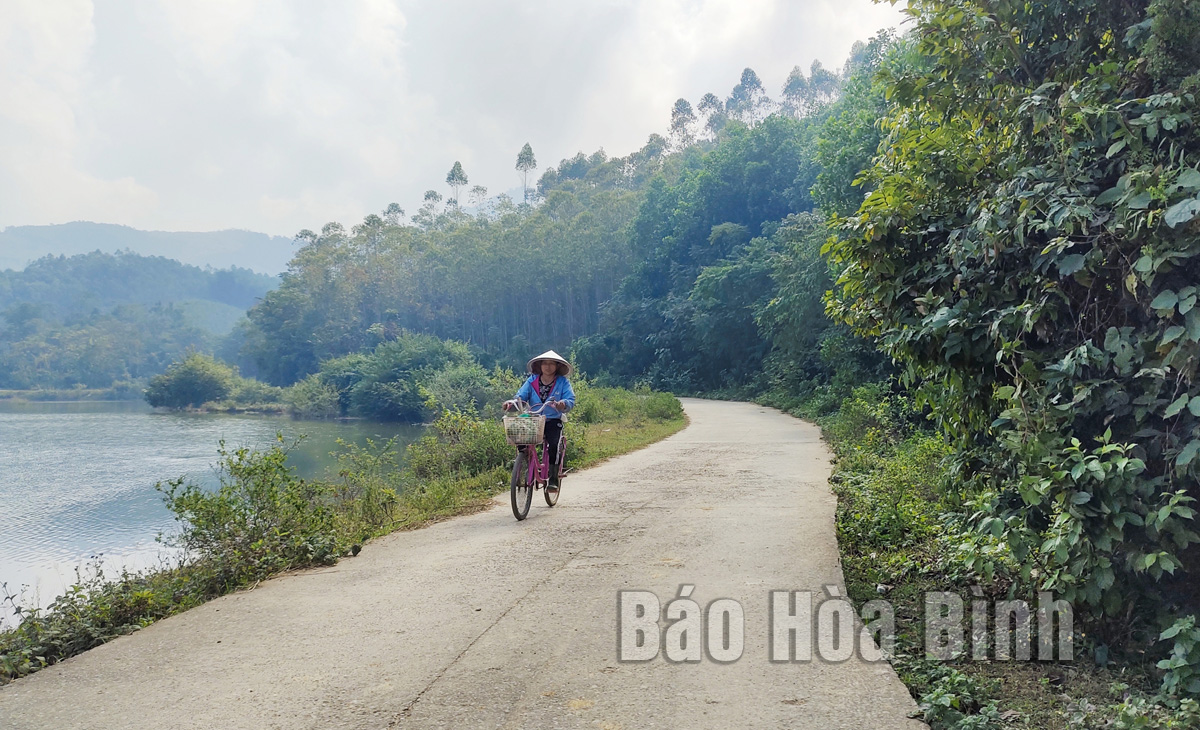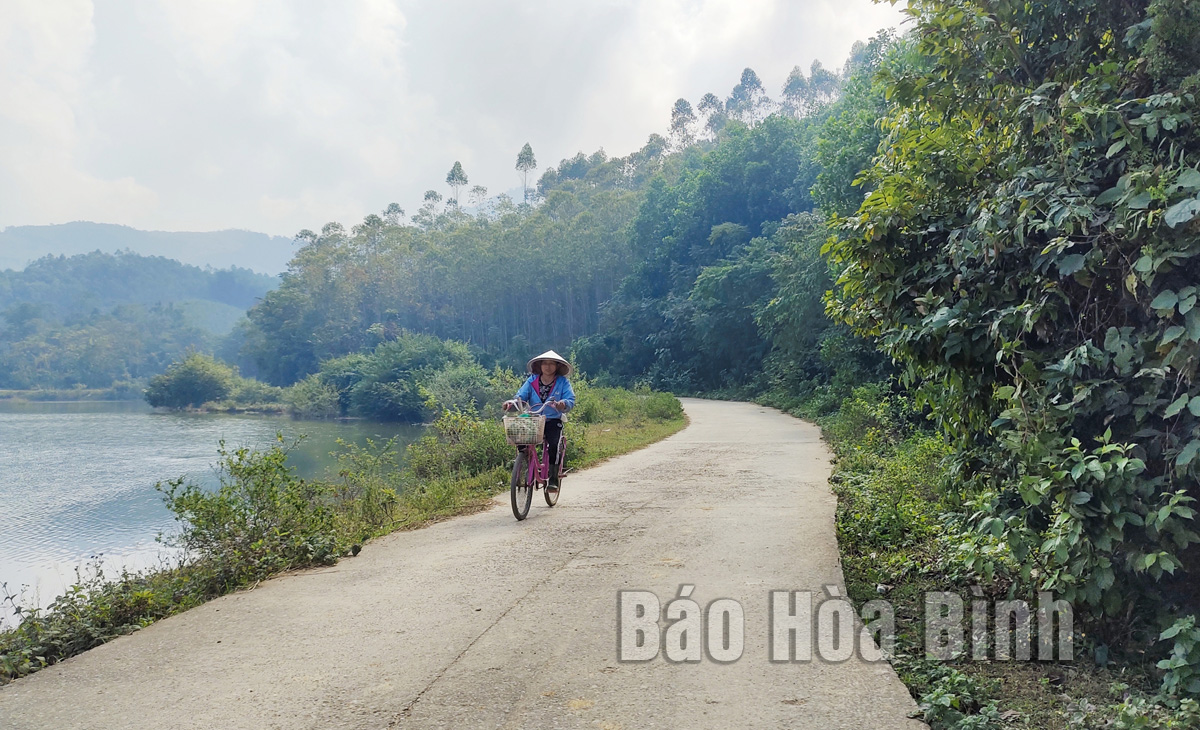
(HBO) - That is one of the goals set out in Resolution No. 03-NQ/TU, dated July 30, 2021, of the provincial Party Committee on leadership in socio-economic development in ethnic minority areas in the 2021 – 2030 period in the province.

Investing in socio-economic infrastructure,
especially roads, is an important solution to the development of ethnic
minority and mountainous areas. Photo taken in Chau hamlet, Tu Ly commune (Da
Bac).
Specifically, the province sets targets that by 2030, the
average income of ethnic minorities will reach half of the national; the rate
of poor households be reduced to less than 10%; 70% of communes in ethnic
minority and mountainous areas meet new-style rural area building standards;
and 40% of ethnic minority employees know how to work in industry, handicrafts,
tourism, and services.
Besides, the province is striving for more than 90% of
ethnic minority farmers getting involved in agricultural and forestry
production; over 90% of communes and hamlets having enough infrastructure to
meet the requirements of socio-economic development and people's lives;
basically dealing with unplanned migration in mountainous and ethnic
minority-inhabited areas; and relocating 100% of ethnic minority households
living in remote areas, where there is a high risk of flash floods and landslides./.
According to data from the Hoa Binh Provincial Party Committee, the industrial production index for the first six months of 2025 is estimated to have increased by 20% compared to the same period last year. This marks the highest year-on-year growth rate for this period since 2020.
In the first six months of 2025, Hoa Binh province’s export turnover was estimated at 1.145 billion USD, marking an 18.11% increase compared to the same period in 2024. Import turnover was estimated at $ 804 million, a 17.15% increase, which helped the province maintain a positive trade balance.
The lives of the ethnic minority farmers in Tan Lac district have gradually improved thanks to the new directions in agricultural production. This is a testament to the collective strength fostered through the professional associations and groups implemented by various levels of the district’s Farmers’ Union.
With the motto the "product quality comes first,” after nearly one year of establishment and operation, Muong village’s Clean Food Agricultural and Commercial Cooperative, located in Cau Hamlet, Hung Son Commune (Kim Boi district), has launched reputable, high-quality agricultural products to the market that are well-received by consumers. The products such as Muong village’s pork sausage, salt-cured chicken, and salt-cured pork hocks have gradually carved out a place in the market and they are on the path to obtaining the OCOP certification.
In the past, the phrase "bumper harvest, rock-bottom prices" was a familiar refrain for Vietnamese farmers engaged in fragmented, small-scale agriculture. But today, a new spirit is emerging across rural areas of Hoa Binh province - one of collaboration, organisation, and collective economic models that provide a stable foundation for production.
Maintaining growing area codes and packing facility codes in accordance with regulations is a mandatory requirement for agricultural products to be eligible for export. Recently, the Department of Agriculture and Environment of Hoa Binh province has intensified technical supervision of designated farming areas and packing facilities to safeguard the "green passport" that enables its products to access international markets.



